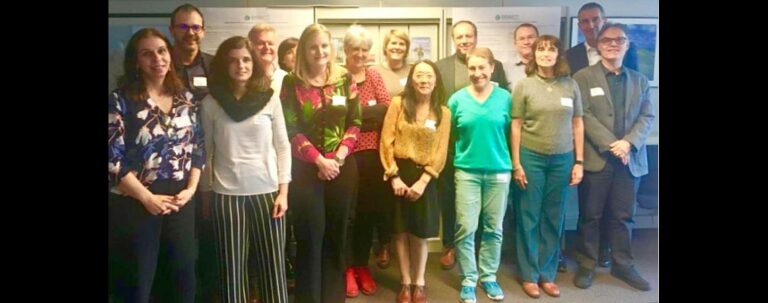One of the objectives of the All-Atlantic Ocean Research Alliance is the construction of the All-Atlantic Ocean Research Community. Through the promotion of new models of cooperation around the whole Atlantic Ocean basin, this massive coordinated and partnership-based endeavour will encourage joint activities, increment operational efficiency within marine research, expand our common understanding and scientific knowledge on the Atlantic, and leverage capacity development through scientific exchange. In order to achieve this objective, five stakeholders’ platforms were created under the AANChOR project to foster the interaction of experts of various key scientific areas. On 5 February 2020, on the eve of the second All-Atlantic Ocean Research Forum (Brussels, Belgium), the AANChOR project gathered dozens of experts in five different workshops to better understand what should be the next steps in each of their fields of transatlantic cooperation.
AANChOR’s partern KDM-ZMT, from Germany, organised the workshop on Ocean Data Management. The guests were twenty marine and data scientists, and policy experts from around the Atlantic. They were invited within the scope of AANChOR to discuss the problems of today’s Atlantic Ocean data management systems, in particular, common standards for information and data sharing.
Data standardization is a hot topic in the marine sciences. In an ideal world, everyone would use a standards-based approach to ensure interoperability between systems, enhance data discovery and data access. In such world, all collected data would be retained and made accessible for analysis and application for current and future users. Marine scientists would not have to worry about redundancy, would spend less time and energy on data reconciliation, manual interventions, corrections and amendments. When aggregating data for decision-making, for example, they would be certain to be comparing “apples with apples” and not with cucumbers. But, we are in the real world where all sorts of challenges exist, being the diversity and increased volume of oceanographic data only the tip of the iceberg.
During the AANChOR workshop, all scientists repeatedly stressed how vital it is to guarantee open data for maximal community benefit and brainstormed on ways and means to address this and other conspicuous problems of the Tropical and South Atlantic. Specifically, they devised three collaborative activities for transatlantic cooperation in Common Standards for Information and Data Sharing. Subjacent to these activities, is the vision of unrestricted access to historical, present and future natural-, social- and humanistic- scientific transatlantic ocean data. This is no easy task! Ultimately, the joint actions should improve efficiency, make better use of existing capacities and expertise, avoid overlap, and create highly trained professionals who can face the challenges and opportunities in the Atlantic in the spirit of the Belém Statement.
The proposed joint actions still need to be characterized in detail, but the themes were already identified. They consider societal needs and benefits, policy aspects, ecosystem health and biodiversity, and business needs: (1) Data needs for reducing societal vulnerability to harmful algal blooms in the South Atlantic; (2) Data needs for investigating carbon sequestration and storage/ climate change mitigation; and (3) Data on biogeographic regime changes – impacts on fisheries.
Questions and comments regarding AANChOR’s Ocean Data Management platform should be directed to ana.rei@leibniz-zmt.de.
The All-Atlantic Ocean Research Alliance is an international initiative supporting research and innovation promoting the sustainable use of the oceans. It is the result of various science diplomacy efforts involving Atlantic countries on both sides of the Equator line. It aims at enhancing marine research and innovation cooperation along and across the Atlantic Ocean, from the Arctic to Antarctica. To learn more about the Alliance and its relationship with the Galway and Belém Statements and the Administrative Arrangements with Argentina and Cape Verde, please have a look at this video or read this brochure.

